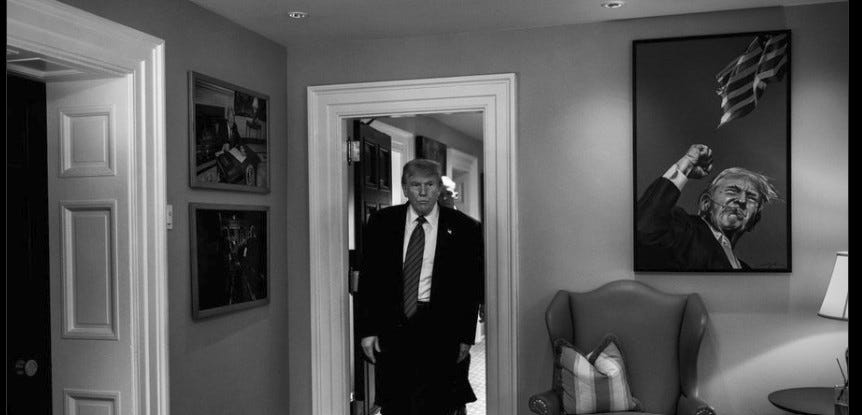
The courts are continuing to hold that Trump has gone too far in his efforts to deport migrants from the United States.
In Brownsville, Texas, U.S. District Judge Fernando Rodriguez Jr., a Trump appointee, ruled against the president’s lawless use of the 1798 Alien Enemies Act (AEA) to detain and deport Venezuelan immigrants from South Texas. Trump, by proclamation, had invoked AEA to oust Venezuelan gang members from the country without a hearing.
This ruling may end many of the administration’s questionable deportation moves, invalidating the legal basis for their actions. Unless reversed by the higher court, the commonsense decision will bar such deportations in South Texas. The ruling may also have implications for litigation pending in other districts.
Federal judges in New York, Pennsylvania, and Colorado have issued temporary restraining orders blocking the administration from deporting immigrants without due process under the wartime law. They have ruled that the government cannot use the act to deport immigrants without notifying them in advance of their destination and giving them a chance to challenge that in court. This is the first time a federal judge has flatly weighed in on the act’s legality.
The judge relied on the statute’s plain language to reach his decision. He rejected Trump’s claims that a Venezuelan gang was invading the United States to justify using the act to deport migrants without a hearing. He said the president’s action “exceeds the statute’s scope. He correctly reasoned that the law authorizes such deportations only during wartime or a hostile invasion and concluded that Trump’s reliance on AEA “is contrary to the plain, ordinary meaning of the statute’s terms.” In our history, Presidents have only reserved the AEA for use in three major wars.
In a 36-page opinion, Rodriguez ruled, that the government does not have statutory authority “to detain Venezuelan aliens, transfer them within the United States, or remove them from the country.” According to the American Civil Liberties Union, petitioners were threatened with imminent removal under AEA. They are accused of belonging to Tren de Aragua, a Venezuelan gang. There is no argument that its members are a bad lot and should be deported. Still, by proclamation or otherwise, the government must do it legally. They remain in detention at El Valle Detention Center in Raymondville, Texas.
The judge’s decision covers the Southern District of Texas, including Brownsville, McAllen, and Houston, none of them far from the Mexican border. He clarifies that the government can deport people under other immigration statutes so long as their due process rights are satisfied. His ruling applies to the plaintiffs who brought the case and to a class of similarly situated migrants in the Southern District of Texas.
Blocking the Trump administration from deporting anyone under AEA is not a novel legal theory. But this is the first case where a judge has ruled that AEA cannot be used against people who are alleged gang members invading the United States.
Lee Gelernt, an American Civil Liberties Union lawyer who was lead counsel for the three Venezuelan plaintiffs, welcomed the decision. “The court ruled the president can’t unilaterally declare an invasion of the United States and invoke a wartime authority during peacetime,” he said. “This is a critically important decision that prevents more people from being sent to the notorious CECOT prison (a maximum-security prison in El Salvador).” Gelernt stated, “Congress never meant for this 18th-century law to be used in this manner.”
After extensive analysis of historical records, Judge Rodriguez concluded that the ordinary meaning of “invasion” or “predatory inclusion” when AEA was enacted required a military incursion. He found that the criminal activities of Tren de Aragua members, while harmful, did not constitute an “invasion” or “predatory incursion” within the meaning of the Act.
The government “makes no reference to and in no manner suggests that a threat exists of an organized, armed group of individuals entering the United States at the direction of Venezuela to conquer the country or assume control over a portion of the nation,” Judge Rodriguez wrote.
“Thus, while the Court finds that an ‘invasion’ or ‘predatory incursion’ must involve an organized, armed force entering the United States to engage in conduct destructive of property and human life in a specific geographical area, the action need not be a precursor to actual war.”
Trump summarily invoked the act in March to remove more than 130 immigrants to El Salvador, many of whom had been detained in South Texas. But Rodriguez said the edict lacked evidence of an invasion and sidestepped existing immigration law, which provides the proper procedures for deportations, which notably include a hearing.
Rodriguez found that “the historical record renders clear” that Trump’s invocation of the act is “contrary to the plain, ordinary meaning of the statute’s terms.” As a result, he wrote, the administration cannot use it, based on the reasoning in Trump’s executive order, to remove undocumented immigrants from the country.
“The President cannot summarily declare that a foreign nation or government has threatened or perpetrated an invasion or predatory incursion of the United States, followed by the identification of the alien enemies subject to detention or removal,” Rodriguez wrote.
Trump will undoubtedly appeal the decision. If he does, the case would go to the 5th U.S. Circuit Court of Appeals, one of the country’s most conservative courts. That is the circuit that gave us such gems as a nationwide ban on medically induced abortions. That circuit struck down the Consumer Financial Protection Bureau, jeopardizing the Federal Reserve Board. Thereafter, the case will go to the Supreme Court, where it was destined to go from the presidential declaration of national emergency.
In another case in Vermont, U.S. District Judge Geoffrey Crawford, in a sizzling opinion, ordered the release of Columbia University student Mohsen Mahdawi, a green card holder accused of participation in pro-Palestinian protests, after two weeks of detention. “The two weeks of detention so far demonstrate great harm to a person who has been charged with no crime,” said Crawford at a hearing.
In his ruling, Crawford said Mahdawi did not pose a danger to the public and was not a flight risk.
In releasing Mahdawi on bail, Crawford evoked parallels between the current political climate and McCarthyism. “This is not the first time that the nation has seen chilling action by the government intended to shut down debate,” Judge Crawford declared.
Mahdawi added his comments on the steps of the courthouse. “This is a light of hope, hope, and faith in the justice system in America,” “I am saying it clear and loud to President Trump and his cabinet: I am not afraid of you,” Madhawi was a prominent figure in Columbia University Apartheid Divest which called for the “eradication of Western civilization.” It is ironic that here, he benefited from the traditions of Western civilization, namely the rule of law, due process, and judicial review.
The post The Courts Push Back Against Trump appeared first on Washington Monthly.


 1 month ago
12
1 month ago
12 










 Bengali (Bangladesh) ·
Bengali (Bangladesh) ·  English (United States) ·
English (United States) ·